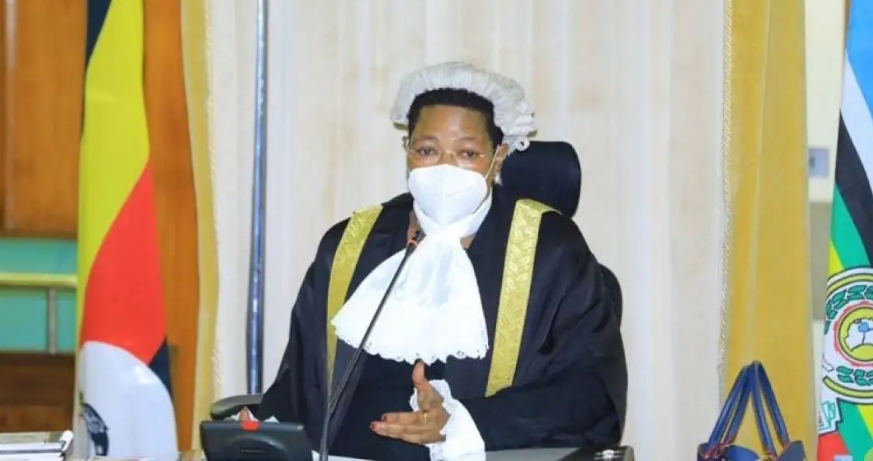The Speaker of Parliament, Anita Among Annet has directed the Auditor General to conduct an audit on the 1.334 billion Shillings disbursed in 2018 for interventions against the nodding syndrome in Northern Uganda.
Among’s directive followed a debate on the motion on Wednesday moved by Lillian Aber, the Kitgum District Woman MP seeking the resolution of Parliament urging the Government to prioritize interventions into the syndrome on Wednesday.
In her motion, which was seconded by Martin Ojara Mapenduzi, the Bardege-Layibi MP, and Juliet Achayo Lodou of Ngora County, Aber argued that despite interventions made so far, the number of affected children in Kitgum stands at 1,449.
Aber told MPs that the Mental Health Department in Kitgum Hospital is understaffed and unable to carry out outreaches to assist the victims.
She added that despite the research that has been carried out, there is still no clear medical explanation of the causes of the disease.
Aber wants the government to ensure the appropriate utilization of the funds, fast-track the operationalization of the existing rehabilitation centres, train medical personnel to assist the victims, facilitate and intensify further research into the medical condition as well as provide food relief supplies to the affected families.
The Leader of Opposition – LoP Mathias Mpuuga tasked the Government to present a comprehensive assessment of the dire situation in the affected region, and an immediate, medium, and long-term strategy to curb the disease.
Several MPs argued that before new interventions are devised, there must be a comprehensive audit of the supplementary funds that have been disbursed to the affected districts of Gulu, Kitgum, Amuru, Lamwo, Pader, and Omoro in Acholi and neighboring Oyam in the Lango sub-regions following alleged reports of misappropriation by district leaders.
The Speaker directed the Auditor General to carry out a forensic audit on the funds and report back to the House on the findings to inform the next course of action.
She also tasked the Ministry of Health to report to the House after every three months on their interventions.
Anifa Kawooya Bangirana, State Minister for Health in charge of General Duties welcomed the directive. She explained that since the 2018/2019 financial year, the Ministry of Finance, Planning, and Economic Development has been disbursing funds directly to the affected districts to coordinate various interventions.
In Northern Uganda, the Nodding disease and epilepsy epidemic started around 2000, but new cases declined since 2008, and none has been recorded since 2015. The unexplained ailment has claimed more than 300 children and leftover 3,000 others incapacitated.
The condition affects children between 5-15 years, causing progressive cognitive dysfunction, neurological deterioration, stunted growth, and a characteristic nodding of the head, according to the Centers for Disease Control and Prevention – CDC.
The ailment that the World Health Organization – WHO says has no set of causes was first documented in Tanzania in the 1960s, then later in South Sudan in the 1990s, and in northern Uganda in 2007.
Still, research suggests that black flies play a role in transmitting an agent that directly or indirectly causes the Nodding syndrome and other forms of epilepsy in rural parts of northern Uganda, South Sudan, and Tanzania near rivers.

